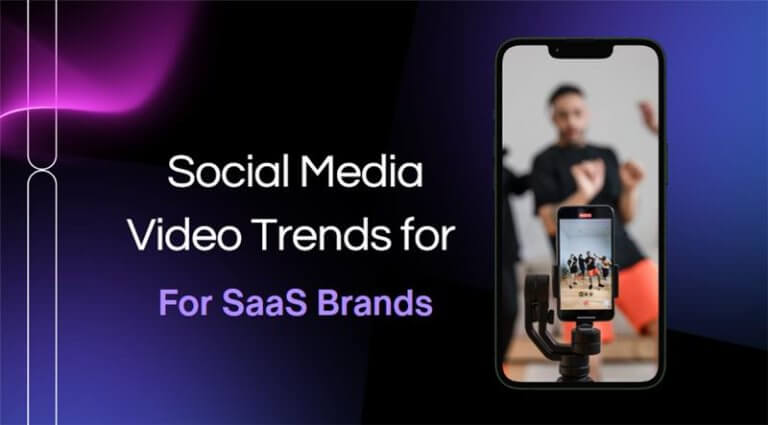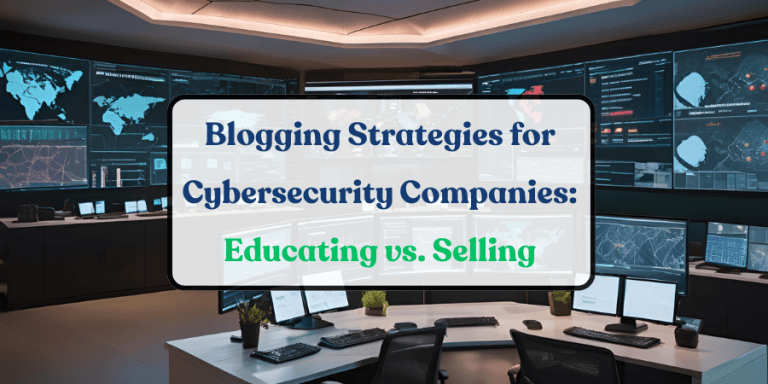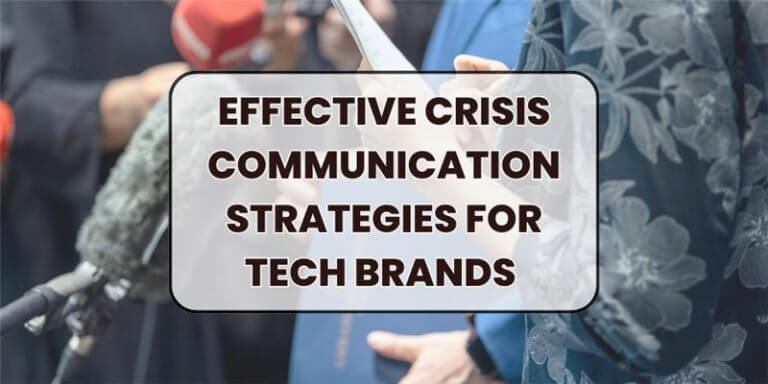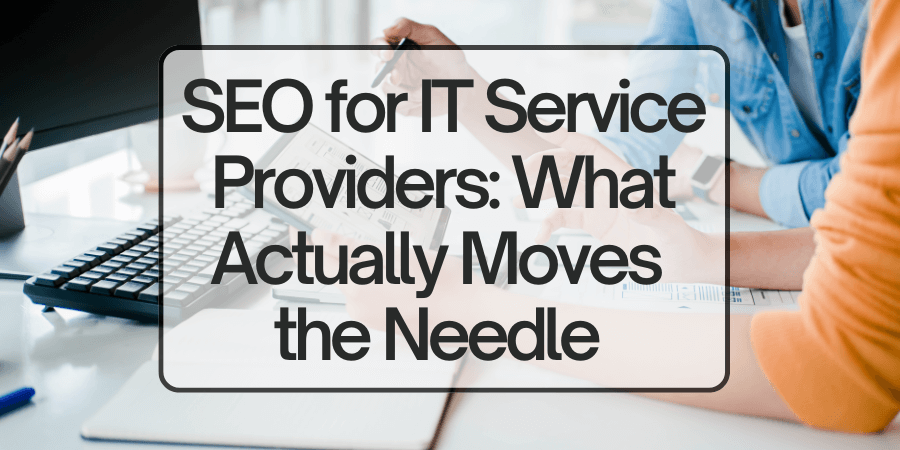Is AI the Missing Piece in Your Content Marketing Strategy?
Many IT and SaaS companies are already using AI to scale content production, improve personalization, and make data-backed marketing decisions. This rapid adoption is driven by AI’s ability to automate content creation, analyze audience behavior, and optimize performance in ways that traditional methods cannot match.
How AI is Changing Content Marketing for IT and SaaS
AI is no longer just an emerging trend—it is fundamentally reshaping marketing for technology-driven businesses. AI in content marketing for IT & SaaS is helping companies streamline their workflows, create high-quality content faster, and ensure their messaging reaches the right audience.
- Automating Content Creation – AI-powered tools like Jasper and Copy.ai generate blog posts, social media content, and even email copy in minutes. This allows teams to focus on strategy rather than spending hours writing content manually.
- Enhancing Personalization – AI can analyze customer data to tailor content based on user preferences, ensuring higher engagement rates.
- Improving SEO Strategies – AI tools like Clearscope and SurferSEO analyze search trends and recommend keyword-rich content that ranks higher on Google.
Key SaaS AI Tools for Content Marketing
With AI becoming a core part of marketing, several SaaS AI tools are leading the way in content automation and optimization:
- Jasper & Copy.ai – AI-powered writing assistants that help create long-form and short-form content efficiently.
- SurferSEO & Clearscope – AI-driven SEO optimization tools that ensure content aligns with search engine best practices.
- ChatGPT & Claude – AI-based chatbots that generate content ideas, drafts, and outlines for blog posts and marketing copies.
- Grammarly & Hemingway Editor – AI-powered editing tools that refine content to improve readability and engagement.
By using these SaaS AI tools, IT and SaaS companies can maintain a consistent content pipeline without compromising on quality.
Benefits of Content Marketing
Content marketing is a key growth driver for IT and SaaS companies, helping them build authority, engage audiences, and generate leads. Here are some of its biggest advantages:
- Increases Brand Awareness – Regular, high-quality content ensures your company stays visible to potential customers. Businesses that blog get 55% more website visitors than those that don’t.
- Drives Organic Traffic – Optimized content helps websites rank higher on search engines. AI in content marketing for IT & SaaS enhances SEO efforts by analyzing trends and recommending keyword-rich content.
- Generates High-Quality Leads – Companies using content marketing generate 3x more leads than traditional outbound marketing, while costing 62% less.
- Positions Your Brand as an Industry Expert – AI-driven content creation helps produce insightful, data-backed content that establishes credibility in a competitive market.
- Supports Customer Education & Retention – Educational content, such as blogs, whitepapers, and AI-powered chatbots, helps customers understand your product better, increasing retention rates.
With AI streamlining content creation, companies can scale their content marketing efforts without compromising quality, making it a crucial strategy for sustainable growth.
AI-Driven Content Creation: Efficiency & Accuracy
The pressure to produce high-quality content consistently is a major challenge for IT and SaaS companies. AI-driven content creation provides a solution by generating content at scale while ensuring relevance and engagement.
- Automating Blog Writing & Social Media Posts – AI tools help businesses generate blog drafts, LinkedIn posts, and Twitter threads tailored to their audience.
- AI-Generated Visuals & Videos – Tools like Canva’s AI design assistant and Pictory create professional-looking visuals and videos without requiring design expertise.
- Maintaining Brand Consistency – AI ensures that content follows a consistent tone, style, and messaging across all platforms.
A study by McKinsey found that AI-powered personalization can drive a 10–15% increase in revenue. This is because AI helps create content that speaks directly to the target audience’s interests and needs.
Machine Learning in Marketing: Data-Driven Decision Making
Marketing success depends on data, and machine learning in marketing allows companies to extract valuable insights that drive better decision-making.
- Analyzing Customer Behavior – AI processes vast amounts of data to identify trends and predict what type of content will perform best.
- Predictive Analytics for Content Performance – AI-powered analytics tools, such as HubSpot’s Marketing Hub and Adobe Sensei, forecast content engagement and recommend adjustments in real time.
- A/B Testing at Scale – AI can test multiple variations of content simultaneously, optimizing elements like headlines, images, and CTAs for maximum engagement.
Companies leveraging machine learning in marketing can optimize their campaigns with data-backed strategies rather than relying on guesswork.
Automated Content for IT Firms: Scaling Without Compromise
For IT firms producing technical content, balancing quality and quantity is crucial. Automated content for IT firms helps scale content marketing efforts while maintaining precision.
- AI-Powered Chatbots & Virtual Assistants – IT firms use AI-driven chatbots like Drift and Intercom to provide instant responses to customer queries, reducing reliance on human support.
- Content Repurposing Across Multiple Channels – AI tools like Lumen5 turn blog posts into engaging videos, while Repurpose.io automates content distribution across platforms.
- Scaling Without Losing Quality – AI-driven grammar and plagiarism checkers ensure content meets industry standards.
A study by Gartner found that by 2026, AI-powered automation will handle 50% of marketing tasks (. This highlights how AI will continue to play a significant role in making content marketing more efficient for IT firms.
Gutenberg’s Approach to AI in Content Marketing
At Gutenberg, we recognize that AI is not just a tool—it’s an essential part of modern content marketing. Our approach to AI in content marketing for IT & SaaS focuses on integrating AI-driven solutions with strategic expertise to deliver high-quality, impactful content.
- Customized AI-Driven Content Strategies – We use AI tools to research trends, optimize content, and ensure maximum audience engagement.
- SEO & Performance Optimization – By leveraging SaaS AI tools, we help IT and SaaS companies create content that ranks well and drives organic traffic.
- Enhancing Brand Messaging – AI helps us analyze brand tone and sentiment, ensuring consistency across all content formats.
By combining AI capabilities with human creativity, Gutenberg helps IT and SaaS companies scale their content marketing efforts effectively.
Conclusion
AI is redefining content marketing, making it more efficient, data-driven, and scalable. AI in content marketing for IT & SaaS enables businesses to create relevant content faster, personalize their marketing strategies, and optimize performance using real-time insights. Whether through SaaS AI tools, AI-driven content creation, or machine learning in marketing, the future of content marketing is AI-powered.
If you want to integrate AI into your content strategy effectively, Gutenberg ensures your brand stays ahead in the competitive IT and SaaS landscape.











